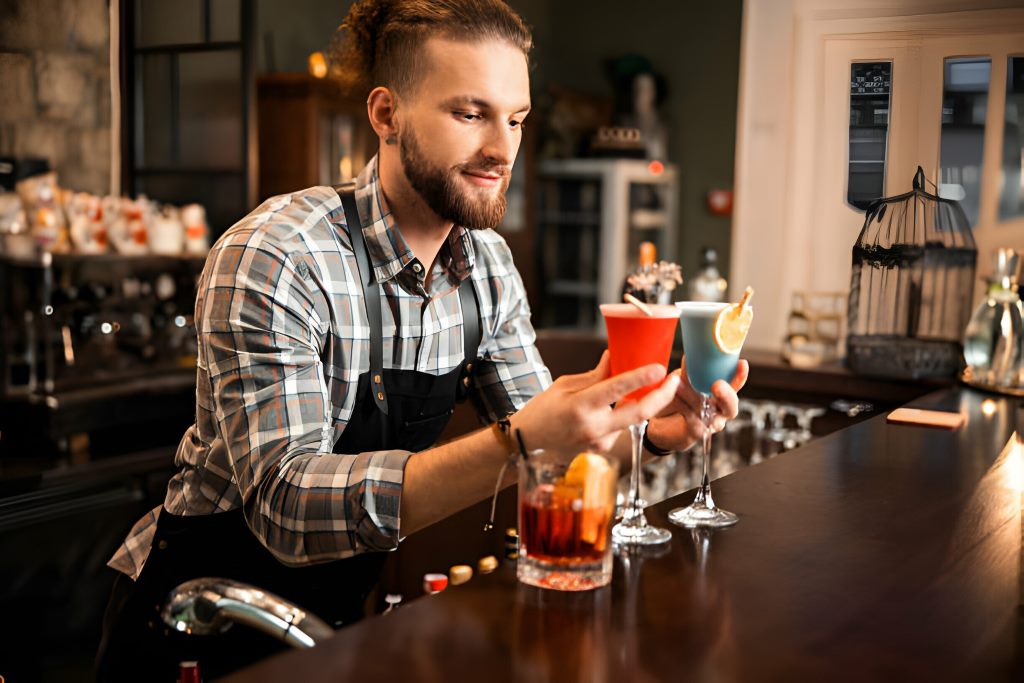Running a cocktail bar is an adventure that requires creativity setting the atmosphere and providing exceptional service. However, amidst all the excitement bar owners must navigate through a web of considerations to ensure compliance and smooth operations.
This comprehensive guide will delve into the permits and legal aspects that cocktail bar owners should keep in mind. It offers insights, into the landscape licensing requirements and important legal considerations.
Understanding the Regulatory Landscape
Cocktail bars operate within a framework that can vary depending on the jurisdiction. Having an understanding of this regulatory landscape is crucial for maintaining legal compliance. If you are looking for a cocktail bar in Bethnal Green, you can check online.
1. Local Regulations
Local regulations play a role in shaping the environment for cocktail bars. These regulations may include zoning laws, noise ordinances, and operating hours. Bar owners need to familiarize themselves with these rules governing their locality to avoid any legal issues.
2. State Laws and Licensing
State laws often dictate the licensing requirements for businesses involved in alcohol sales, including cocktail bars. This involves obtaining the licenses for selling and distributing beverages while adhering to state-specific regulations and understanding the legal implications of operating within those parameters.
3. Federal Compliance
Cocktail bar owners should also be mindful of regulations concerning alcohol taxation and labeling. Adhering to these laws ensures an operation without encountering legal issues from higher regulatory authorities.

Licensing Requirements for Cocktail Bars
Licensing is essential for the functioning of cocktail bars. Acquiring the licenses is not a legal obligation but also contributes to the establishment’s reputation and credibility.
1. Alcohol Licensing
Obtaining the right alcohol license is important for cocktail bars. The types of licenses may vary based on the services offered such as on-site consumption, off-site sales, and special event permits. Understanding and complying with these licenses are responsibilities.
2. Health and Safety Permits
Ensuring the safety of customers and staff is a requirement. Obtaining health permits entails adhering to regulations related to food handling, sanitation practices, and employee well-being. Failure to obtain these permits can result in consequences. Harm the establishment’s reputation.
3. Music Licenses
In case a cocktail bar provides music or entertainment additional licenses might be necessary. These include licenses, for playing recorded music, hosting performances, or organizing events.
Understanding the responsibilities, in this area is crucial to avoid legal conflicts.
Complying with Employment Laws
When managing a workforce in a cocktail bar it is important to navigate through employment laws to ensure a fair work environment.
1. Regulations on Wages and Hours
Cocktail bar owners need to comply with regulations regarding minimum wages and overtime pay. Failing to adhere to these rules can lead to disputes and financial burdеns.
2. Employee Contracts and Workplace Policies
Creating employment contracts and establishing workplace policies are essential for legal compliance. These documents outline the rights and responsibilities of both employers and employees fostering a working atmosphere.
3. Preventing Discrimination and Harassment
Cocktail bar owners must remain vigilant in preventing discrimination and harassment. Understanding and adhering to discrimination laws, including those related to gender, race, and sexual orientation is crucial for avoiding any potential legal consequences.

Navigating Intellectual Property Matters
- The creative nature of cocktail bars often involves recipes and distinctive themes. Owners need to navigate intellectual property laws effectively to safeguard these assets.
- Trademarks for Brand Identity Securing trademarks, for the name, logo, and branding elements of a cocktail bar is crucial to prevent use by competitors. The protection of trademarks helps establish brand recognition and provides a safeguard against disputes.
- Recipe protection may not cover the recipes themselves under copyright laws. It can extend to the presentation, branding, and marketing strategies associated with signature cocktails. Understanding the intricacies of recipe protection is key to maintaining an advantage.
- When incorporating music into a cocktail bar setting whether through performances or recorded tracks it is essential to obtain licensing in compliance with copyright laws. Acquiring the licenses from performing rights organizations ensures both ethical use of musical content.
- Ensuring the safety of patrons and staff remains a priority for cocktail bar owners. Compliance, with health and safety regulations, is not a requirement but also an integral part of responsible business practices.
- For cocktail bars that offer food services adhering to food handling and sanitation regulations is critical. Obtaining and maintaining health permits necessitates protocols to prevent illnesses and maintain a clean environment.
- Cocktail bars are responsible for following fire safety regulations to ensure the safety of both customers and staff. This involves positioning fire exits regularly maintaining fire extinguishers and adhering to occupancy limits. Failing to comply with these regulations can result in consequences and significant risks.
Managing Noise and Nuisance Issues
Dealing with noise and nuisance complaints can present challenges for cocktail bars. It is crucial to manage these issues to maintain relationships with the local community.
Noise Ordinances
Understanding and abiding by noise ordinances is vital for cocktail bars, those located in mixed-use areas. Implementing measures like soundproofing and monitoring noise levels can help prevent disputes and conflicts with neighbors.
Nuisance Mitigation
Cocktail bars need to take steps to mitigate nuisances such as excessive noise, overcrowding, or disruptive behavior. Managing these issues effectively while cooperating with authorities helps foster relationships within the community while also ensuring legal compliance.
Community Engagement
Engaging with the community is not only a proactive approach but also an important legal strategy, for cocktail bars. Developing relationships, with neighbors actively participating in community events, and promptly addressing concerns can help foster a sense of goodwill and minimize the chances of encountering disputes.

Conclusion
Running a cocktail bar entails more than creating exceptional drinks and a lively atmosphere. Navigating the landscape is crucial for ensuring the long-term success and reputation of the establishment.
This involves understanding regulations obtaining licenses adhering to employment laws and effectively managing safety issues. By addressing these considerations cocktail bar owners can establish a strong foundation, for a thriving business that not only pleases customers but also operates responsibly within legal boundaries.




